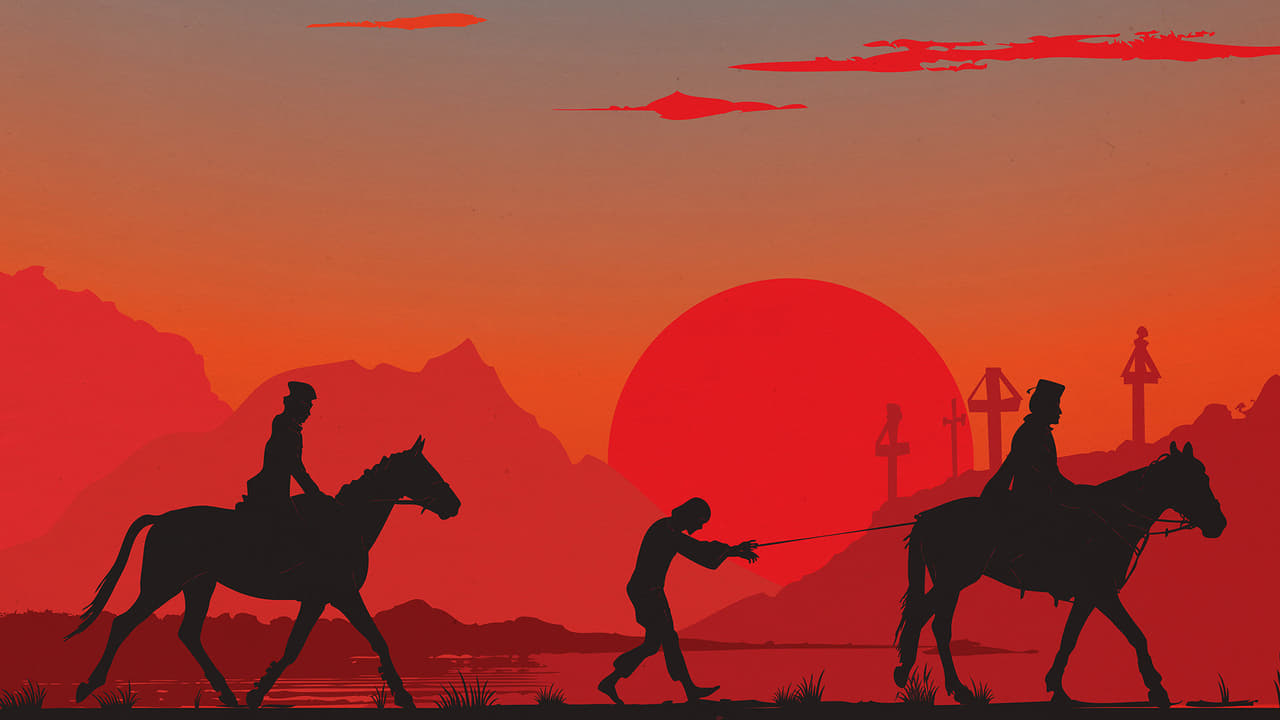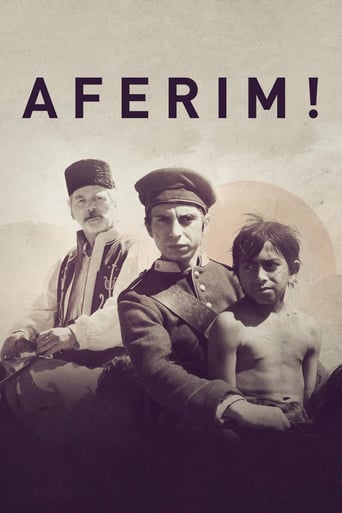

Aferim! (2016) is sharply funny and uniquely crafted. Usually in a historical movie such as this one you would see a celebration of a certain culture. However, that is totally not the case here. Rather than being traditionally celebratory, the story presented shows how immoral the world used to be. I really loved how telling the story was, while at the same time being incredibly humorous. I also loved how confined yet vast the entire world felt. There were still several moments where I was absolutely bored. I can't say that I was entirely invested throughout the entire duration of the film. Yet there were still scenes which made this movie completely entertaining to watch. Going back to the story: I found that to be the overall best part of the film. Something about it felt completely distinctive and uncommon. The languages used are probably a key factor in helping to create that feeling. 'Aferim!' is charming as a whole, but boring in parts.
... View MoreA grand film from Romania, directed with surety by Radu Jude, is even stronger because it is dealing with age old bigotry against gypsies, offered in contemporary language (many F bombs here – at least in the translation) that suits the theme well, and since we are dealing with prejudices on every level, the choice to make the film in Black and White makes it all the more pungent.AFERIM! Is not only an interesting historical statement, but it is also a parody of the religious practices of the 19th century – Christian monasteries and encountered priests on the road speak of why gypsies are inferior descendants of Noah's son Ham and there for are to be reviled. But gypsies are not the only people who are mocked by the father/son travelers in this quest for capturing a renegade gypsy: the father speaks about the nasty traits of the Turks, the Greeks, the English, the French, etc etc etc leaving no one in the world (which by the way is not round but ends in a precipice!). But on to the story – and there is one worth seeing: 'Set in early 19th century Wallachia, when a local policeman, Costandin, is hired by Iordache, a boyar (local noble), to find Carfin, a Gypsy slave who had run away from the boyar's estate after having an affair with his wife, Sultana. Costandin sets out to find the fugitive, beginning a journey full of adventures. Gypsy slavery lasted from the 14th century up until the middle of the 19th century, a situation which is very little known and almost nonexistent in the public debate today, although its impact continues to influence Romania's social life.'This little film slipped by viewers and it is hopeful that under the auspices of BIG WORLD PICTURES it will garner enough attention that audiences today will witness the very profound lessons it tells with such a gift of comedic dialogue. We all have much to learn from this film.
... View MoreAferim! (2015) is a Romanian movie written and directed by Radu Jude.Aferim! is a truly unique film. According to the introduction (by Yuriy Reznik), the Roma (called Crows by the Romanians) were slaves in Romania for centuries. (Slavery of the Roma was not outlawed until 1856.) This historical fact has been forgotten, presumably because it was actively suppressed. In fact, Aferim! is the first and only modern movie to show us Roma slavery. The movie is extraordinarily complex, but the plot is basic. A Roma slave named named Carfin Pandolean (Toma Cuzin) has escaped. Constable Costandin (played by Teodor Corban) has been sent to find the slave and bring him back to the local nobleman. The constable takes his son, Ionita (Mihai Comanoiu) along with him as his assistant.What follows is a film of immense beauty (at times), with moments of fascinating folkloric tradition, and moments of extraordinary brutality.In their odyssey, father and son meet many strange characters. I have no way of knowing whether director Jude is accurately showing us what Romania was like in 1835. However, the movie has the feel of reality about it.Constable Costandin is basically a decent human being. However, he has a job to do, and he's going to do it. He knows that, in this case, the job is an extremely dirty one. He worries about it, but he does it anyway.Constandin is not an educated man, but he has an endless fund of folk wisdom, which he dispenses whenever it's needed. At one point he says something like, "We have the life we have, not the life we might want." That's true of almost everyone in the movie.The wild scenery of Romania is strikingly photographed at first. Each frame looks as if it could be made into a still photograph that would compare with a photograph by Ansel Adams. It might have been my imagination, but it seemed to me that the cinematography got rougher and harsher as the movie progressed.We saw this film as part of the Rochester Premieres series at the excellent Dryden Theatre at the George Eastman Museum in Rochester, NY. It won't work as well on the small screen, but if that's your only option, take it. This is a must-see film for anyone interested in modern European cinema. Warning: the action is set in Romania in the 1830's. It's a harsh, violent society. Be prepared for some horrible events.
... View MoreIt is 1835. Constandin and his son are searching for a runaway slave, to be returned to his owner for a reward. Constandin is the local constable and during the journey he is trying to teach his naive, uninterested son what his job entails. Constandin is the protagonist of the piece, and the story is told through his eyes and he is in nearly every scene. His character is the most developed and I felt the son and the slave's personae could have used some padding out. I have never been to Romania and know little of its history. We find that prejudice and racism are endemic in the country at this time, as well as abject poverty and blind ignorance. The screenplay is shot through with these traits and in many ways mirrors the U.S. around the same period. The slave in question is a Gypsy, who apparently were a despised minority and subject to the same indignity and humiliation as minorities in our country were. If we are to believe the screenplay, there was a distinct lack of national moral character and ethical bankruptcy rife in Romania at this time. Constandin, who is the most upright individual we encounter in the film, trying to make a man of his young son, stuns us and hires a whore for him at an overnight stop. He congratulates his son afterwards and continues to impart some of his unique wisdom and worldliness as they continue their travels. Earlier, they come across an Orthodox priest who delivers a comical rant containing all the bigotry and prejudice he can muster, omitting no ethnic group. Do such deeply-held sentiments and moral lapses continue in present-day Romania? The film was shot in black-and-white, although the poster on the website is in color, and is billed as a comedy/western/drama. The latter categories fit better, as there is very little humor to be found. I appreciated the photography which as a reviewer mentioned gives it an authentic look. But "Aferim!" is a bleak and depressing film and ends on a very downbeat note. As such, it does not fall under my definition of entertainment, and I can only recommend it on the basis of its technical accomplishments.
... View More